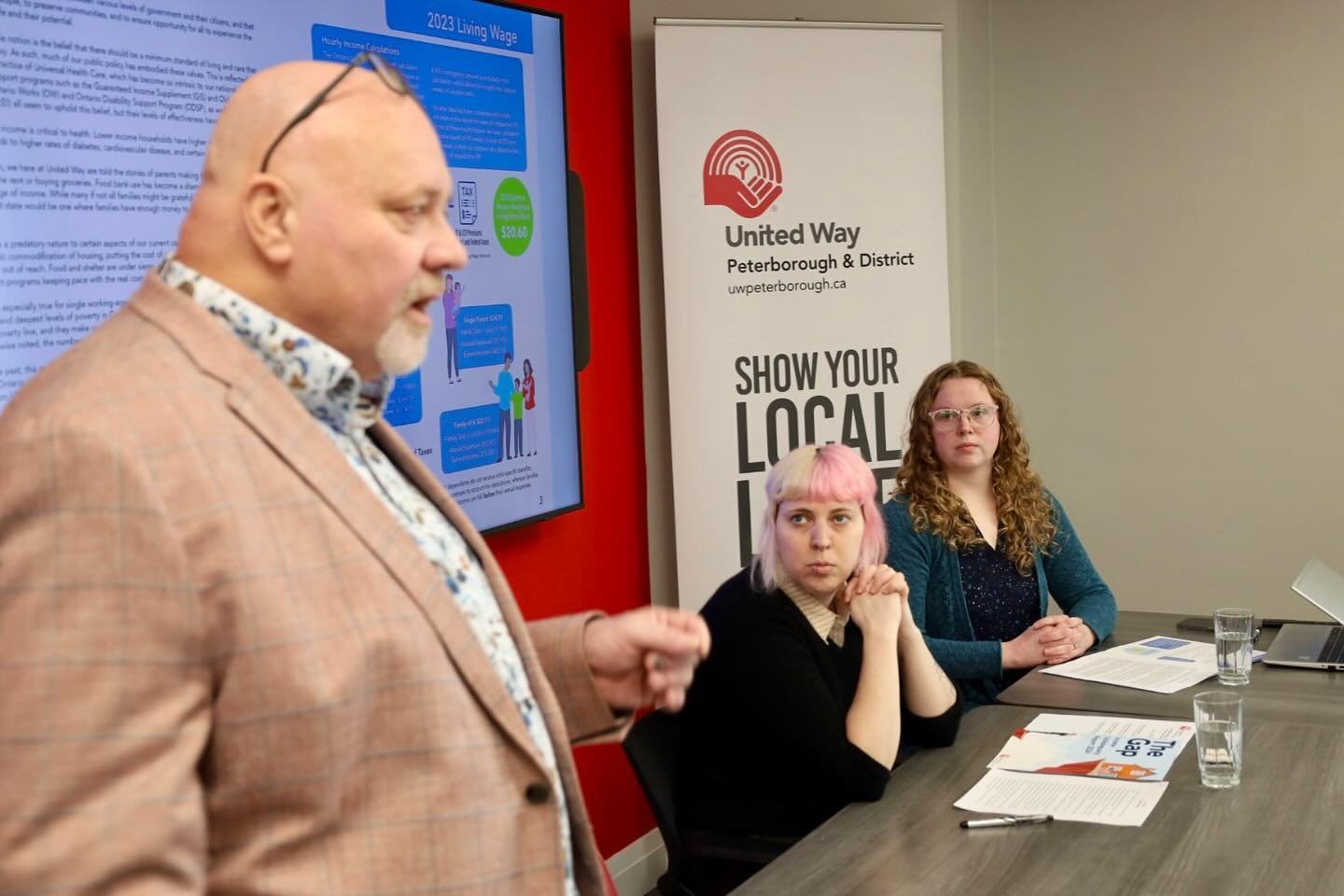United Way Peterborough Unveil Findings On Living Wage History, Release Report of 34-Year History of Income Inadequacy
/The United Way Peterborough & District has released a report that focuses on a 34-year history of income inadequacy and its impact on public health, released on Tuesday.
Jim Russell, United Way CEO (left); Elisha Rubacha, United Way’s community impact officer (middle) and Betsy Farrar, United Way manager of community impact (right) The report was released around World Health Day which is on Sunday, Photo by dAVID tUAN bUI.






